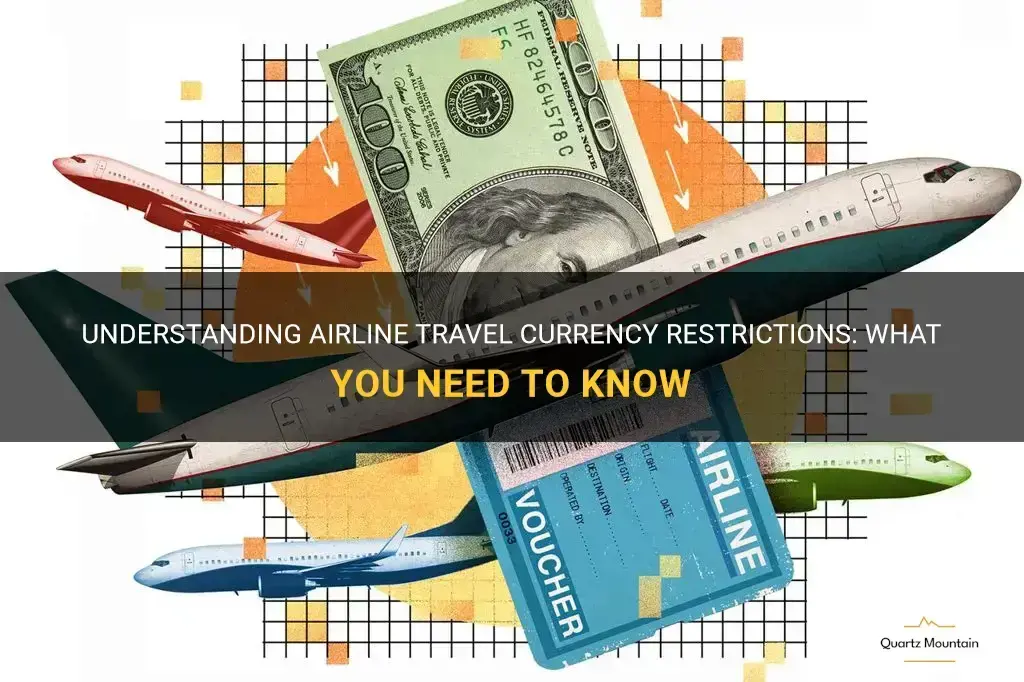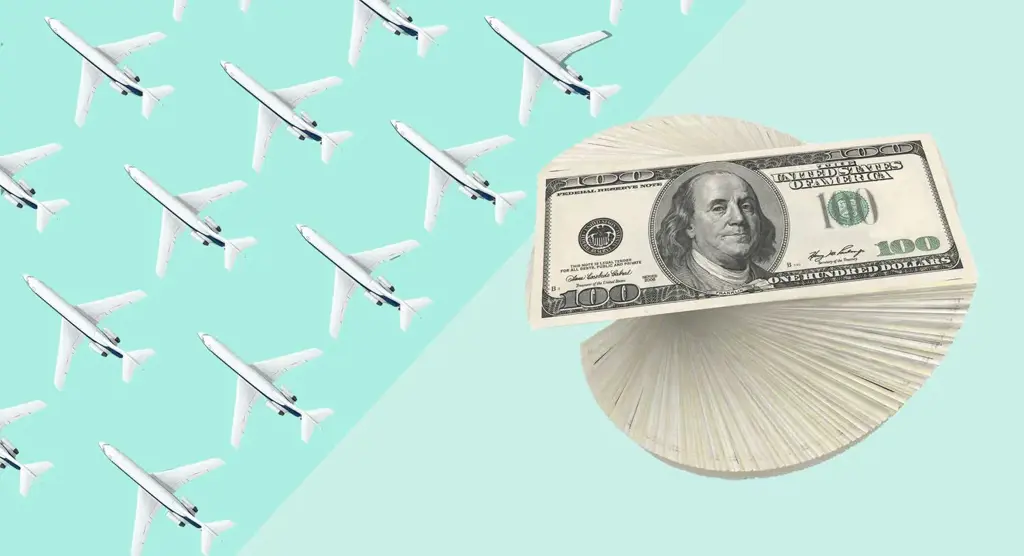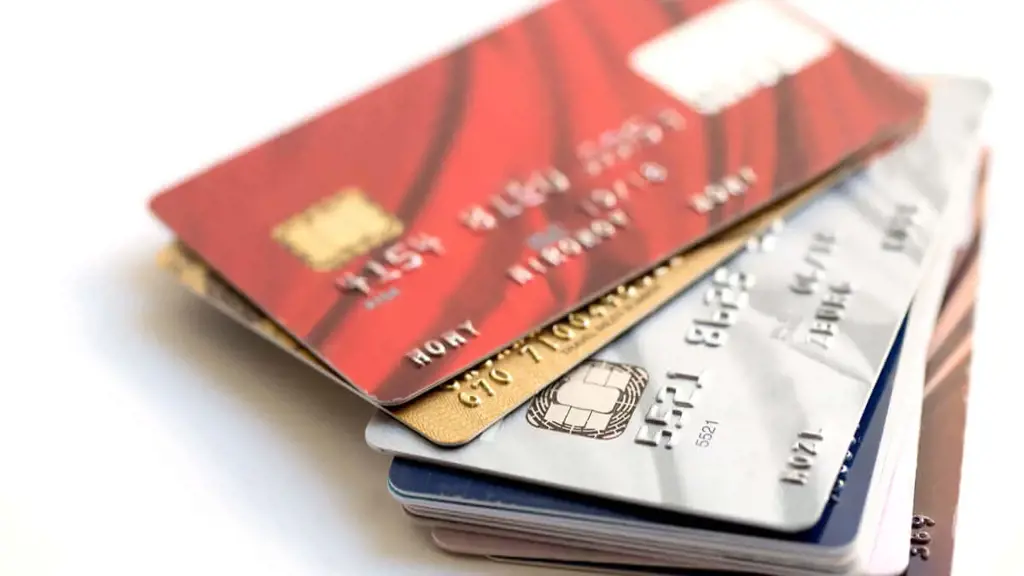
Airline travel is a thrilling and convenient way to explore the world, but it often comes with its fair share of restrictions. One such restriction that frequently leaves travelers scratching their heads is currency limitations. Whether it's restrictions on the amount of currency you can carry, or specific rules on what types of currency are accepted, navigating these regulations can sometimes feel like a whirlwind. In this article, we will delve into the fascinating world of airline travel currency restrictions, uncovering the reasons behind these limitations and exploring the various nuances involved. So fasten your seatbelt and prepare for a journey through the intricacies of currency restrictions in airline travel!
What You'll Learn
- What are the current currency restrictions for airline travel in different countries?
- How much cash can you carry when flying internationally?
- Are there any specific regulations regarding currency restrictions for airline travel within the European Union?
- What happens if you exceed the currency limits set by airlines or customs agencies?
- Are credit or debit cards accepted as alternatives to carrying large amounts of cash for airline travel?

What are the current currency restrictions for airline travel in different countries?

In light of the recent changes in global travel regulations, it is important to stay informed about the currency restrictions for airline travel in different countries. Many countries have put in place certain financial limitations to prevent money laundering, tax evasion, and other illegal activities. The restrictions vary depending on the country and its individual policies. Here are some current currency restrictions for airline travel in different countries.
United States: When departing from or arriving in the United States, there are no specific currency restrictions for airline travel. However, if you are carrying more than $10,000 in currency or monetary instruments, you are required to declare it to the U.S. Customs and Border Protection.
United Kingdom: Similarly to the United States, the United Kingdom does not have any currency restrictions specifically for airline travel. However, the country has regulations in place to prevent money laundering and terrorist funding. If you are carrying more than €10,000 (or equivalent in another currency), you are required to declare it to the UK Customs.
European Union (EU) countries: The EU has a unified policy regarding currency restrictions for airline travel. If you are traveling within the EU, there are no restrictions on the amount of cash you can carry. However, if you are entering or leaving the EU and carrying €10,000 or more (or equivalent in another currency), you must declare it.
Australia: When traveling to or from Australia, there are no currency restrictions for airline travel. However, if you are carrying AUD 10,000 or more (or equivalent in foreign currency), you must declare it to the Australian customs.
China: When entering or leaving China, there is a currency restriction of CNY 20,000 (or equivalent in another currency). If you are carrying more than this amount, you are required to declare it to the Chinese customs.
India: When entering or leaving India, there is a currency restriction of INR 25,000 (or equivalent in another currency). If you are carrying more than this amount, you must declare it to the Indian customs.
It is important to note that these currency restrictions may change without notice, so it is always advisable to check with the customs or relevant authorities of the country you are traveling to for the latest information. Failure to comply with these currency restrictions can result in penalties or confiscation of the undeclared funds.
In conclusion, currency restrictions for airline travel vary from country to country. It is essential to be aware of the specific requirements of the country you are traveling to or from. By abiding by these regulations, you can ensure a smooth and hassle-free travel experience.
Grenada Travel Restrictions Update: What You Need to Know Before You Go
You may want to see also

How much cash can you carry when flying internationally?

When traveling internationally, many people wonder how much cash they can carry with them. Each country has its own regulations regarding the amount of cash that can be brought into or taken out of the country, so it is important to familiarize yourself with these rules to avoid any problems at the airport.
The primary concern for most countries is money laundering and other illegal financial activities. To prevent these types of activities, some countries impose limits on the amount of cash that can be brought in or taken out. These limits can vary widely from country to country.
In the United States, for example, there is no limit on the amount of money that can be brought into or taken out of the country. However, if you are carrying more than $10,000 in cash, you must declare it to U.S. Customs and Border Protection. Failure to do so can result in fines and possible confiscation of the money.
In some countries, the cash limit is significantly lower. For example, in India, the limit is 25,000 Indian Rupees (approximately $350) for Indian residents and 5,000 Indian Rupees (approximately $70) for foreign residents. Failure to declare these amounts can result in penalties and confiscation of the money.
It should be noted that these limits apply to cash in any currency. So, if you are carrying a mix of currencies, including the local currency of the country you are visiting, you will need to convert the total amount into the currency of the country you are entering to determine if you are within the limits.
If you are traveling with a large amount of cash, it is recommended to carry documentation to support the origin and purpose of the funds. This can include bank statements, withdrawal receipts, or receipts from currency exchange transactions. This documentation can help prove that the funds are legitimate and prevent any misunderstandings or confiscation of the money.
It is also important to consider the safety and security of carrying large amounts of cash while traveling. Carrying a significant amount of cash can make you a target for theft or robbery. It is advisable to use other forms of payment, such as credit cards or traveler's checks, for most transactions and only carry a small amount of cash for emergencies or situations where cash is necessary.
In conclusion, the amount of cash you can carry when flying internationally depends on the country you are traveling to or from. It is important to familiarize yourself with the cash limits and declaration requirements of each country to avoid any problems at the airport. Additionally, it is advisable to carry documentation to support the origin and purpose of the funds and to consider the safety and security of carrying large amounts of cash while traveling.
The Current Travel Restrictions in Ukraine: What You Need to Know Before Planning Your Trip
You may want to see also

Are there any specific regulations regarding currency restrictions for airline travel within the European Union?

When traveling within the European Union, you may wonder if there are any specific regulations regarding currency restrictions for airline travel. The answer to this question depends on whether you are traveling within the Eurozone or to a non-Eurozone country within the EU.
If you are traveling within the Eurozone, which consists of 19 EU countries that have adopted the Euro as their official currency, there are no currency restrictions. You can freely travel with any amount of Euros within the Eurozone without any legal limitations.
However, if you are traveling from a Eurozone country to a non-Eurozone country within the EU or vice versa, there are certain currency restrictions that you need to be aware of. The restrictions apply to both the amount of cash you can carry and the disclosure requirements for larger sums of money.
According to the European Union's regulations on cross-border cash controls, which aim to prevent money laundering and terrorist financing, any person traveling between EU countries with a value of 10,000 Euros or more, whether in cash, checks, or other monetary instruments, must declare it to the customs authorities. This applies to both arrivals and departures.
The declaration can be made by filling out a form, usually available at the customs control points at airports and other border crossings. The form requires you to provide details about your identity, the origin of the funds, and the purpose of the transfer.
It's important to note that failing to declare amounts exceeding 10,000 Euros can lead to confiscation of the funds and potential legal consequences. Therefore, it's essential to be aware of the currency restrictions and comply with the declaration requirements when traveling to or from non-Eurozone countries within the EU.
In addition to the currency restrictions, it's also worth noting that airlines and airports may have their own regulations regarding the acceptance of different currencies or payment methods. It's advisable to check with your airline or the airport you are traveling from to ensure you have the necessary means of payment for services or goods during your journey.
To summarize, when traveling within the Eurozone, there are no currency restrictions. However, when traveling between Eurozone and non-Eurozone countries within the EU, there are currency restrictions that require the declaration of amounts exceeding 10,000 Euros. It's important to comply with these regulations to avoid any legal issues during your travel. Additionally, checking with your airline or airport regarding their specific payment regulations is always a good idea.
New EU Travel Restrictions: What You Need to Know
You may want to see also

What happens if you exceed the currency limits set by airlines or customs agencies?

When traveling internationally, it's important to be aware of the currency limits set by airlines and customs agencies. These limits dictate the amount of cash and monetary instruments you can bring into or take out of a country without triggering any legal or administrative repercussions. Exceeding these limits can result in penalties, fines, or even legal consequences. So, what happens if you exceed these currency limits? Let's find out.
Airlines often have their own currency limits that you must comply with. These limits are in place for various reasons, such as preventing money laundering or ensuring the safety and security of passengers. If you exceed the airline's currency limits, you may be required to declare the excess amount and provide a valid reason for carrying such a large sum of money. Failure to declare the excess currency can result in the seizure of the funds, denial of boarding, or even being denied entry into the destination country.
Customs agencies are responsible for enforcing currency limits at border crossings. These limits vary from country to country and are typically set to prevent illicit activities such as smuggling, tax evasion, and money laundering. If you exceed the currency limits set by customs, you may be required to pay a fine or have your excess cash confiscated. In some cases, you may face more serious consequences, such as criminal charges or imprisonment, especially if you knowingly attempt to smuggle large amounts of cash across borders.
It's important to note that the currency limits set by airlines and customs agencies are often designed to target large amounts of cash. Most countries have reasonable limits that allow travelers to bring a reasonable amount of money for personal use without raising any red flags. However, exceeding these limits can still result in severe consequences.
To avoid these issues, it's crucial to familiarize yourself with the currency limits of the countries you plan to visit. Research the specific limits set by both airlines and customs agencies and ensure you comply with them to the best of your ability. If you are planning to carry a large sum of money with you, it's advisable to contact the airline or customs agency in advance to inform them and seek any necessary permissions or documentation.
If you find yourself in a situation where you have exceeded the currency limits, it's best to be honest and cooperative with the authorities. Declare the excess funds and provide a valid explanation for carrying them. It's also recommended to seek legal advice if you are unsure about how to proceed. Engaging with the authorities in a transparent and respectful manner can increase the chances of a favorable outcome.
In conclusion, exceeding the currency limits set by airlines or customs agencies can have serious consequences. From fines and confiscation of funds to criminal charges and imprisonment, the repercussions can vary depending on the severity of the offense and the country in question. To avoid these issues, it's crucial to be aware of the currency limits, declare any excess funds, and seek guidance if needed. Remember, it's always better to be safe than sorry when it comes to international travel and currency regulations.
Exploring the Travel Restrictions in Bermuda: What You Need to Know Before You Go
You may want to see also

Are credit or debit cards accepted as alternatives to carrying large amounts of cash for airline travel?

When it comes to traveling by air, it is important to consider how you will pay for your expenses while on the go. Carrying around large amounts of cash can be risky, as it can be lost or stolen. Therefore, it is wise to consider using credit or debit cards as alternatives to cash for airline travel.
Credit cards are a widely accepted form of payment around the world, making them a convenient option for travelers. They allow you to make purchases and pay for services without the need for cash. Most airlines accept credit cards for purchasing tickets, both online and at the airport. By using a credit card, you can also accumulate reward points or miles that can be redeemed for future flights or other travel perks.
Using a credit card for Airline travel also offers the benefit of protection against fraud or unauthorized transactions. If your credit card gets stolen or used without your authorization, you can dispute the charges and have them removed. This can provide peace of mind and financial security during your travels.
Debit cards, on the other hand, are linked directly to your bank account. They function similarly to credit cards but use your own available funds. Debit cards are widely accepted for airline travel as well, and they can be used for purchasing tickets, paying for in-flight services, or making other travel-related purchases.
However, it's important to note that some airlines or travel agencies might have restrictions or additional fees for using debit cards, so it's advisable to check with them in advance. Additionally, using a debit card for travel might tie up your available funds, which can be an inconvenience if you have limited resources in your bank account.
To avoid any potential issues with using credit or debit cards for airline travel, it is always a good idea to inform your bank or credit card company about your travel plans in advance. This will help prevent any unexpected declines or account freezes due to suspicious activity.
In conclusion, credit and debit cards are widely accepted alternatives to carrying large amounts of cash for airline travel. They offer convenience, security, and additional perks such as reward points or miles. However, it is crucial to be aware of any fees or restrictions associated with using these cards, as well as informing your bank or credit card company about your travel plans to avoid any issues. By utilizing these digital payment methods, you can have a more hassle-free and secure travel experience.
Exploring the Current Travel Restrictions in Paris: A Comprehensive Guide for Tourists
You may want to see also
Frequently asked questions
Yes, there are limits on the amount of currency you can carry when traveling by air. According to U.S. federal regulations, if you are traveling in or out of the country with more than $10,000 in currency or monetary instruments, you must declare it to the U.S. Customs and Border Protection (CBP) before your flight. Failure to declare this amount could result in seizure of the funds and possible legal penalties.
Yes, you can carry foreign currency with you when traveling by air. There are generally no restrictions on the amount of foreign currency you can carry, but it is important to check the regulations of your destination country to ensure compliance with their laws. Additionally, it is always a good idea to carry a mix of currencies, including some destination currency, for convenience in case you need to make purchases upon arrival.
It is generally not recommended to carry large amounts of currency in your checked baggage when flying. While there may not be specific restrictions on carrying currency in checked bags, it is important to consider the risk of loss, theft, or damage to your money. It is generally safer to carry your currency in a secure, carry-on bag or in a money belt worn on your person. If you do choose to pack currency in your checked baggage, it is always a good idea to use a lockable suitcase or bag for added security.







